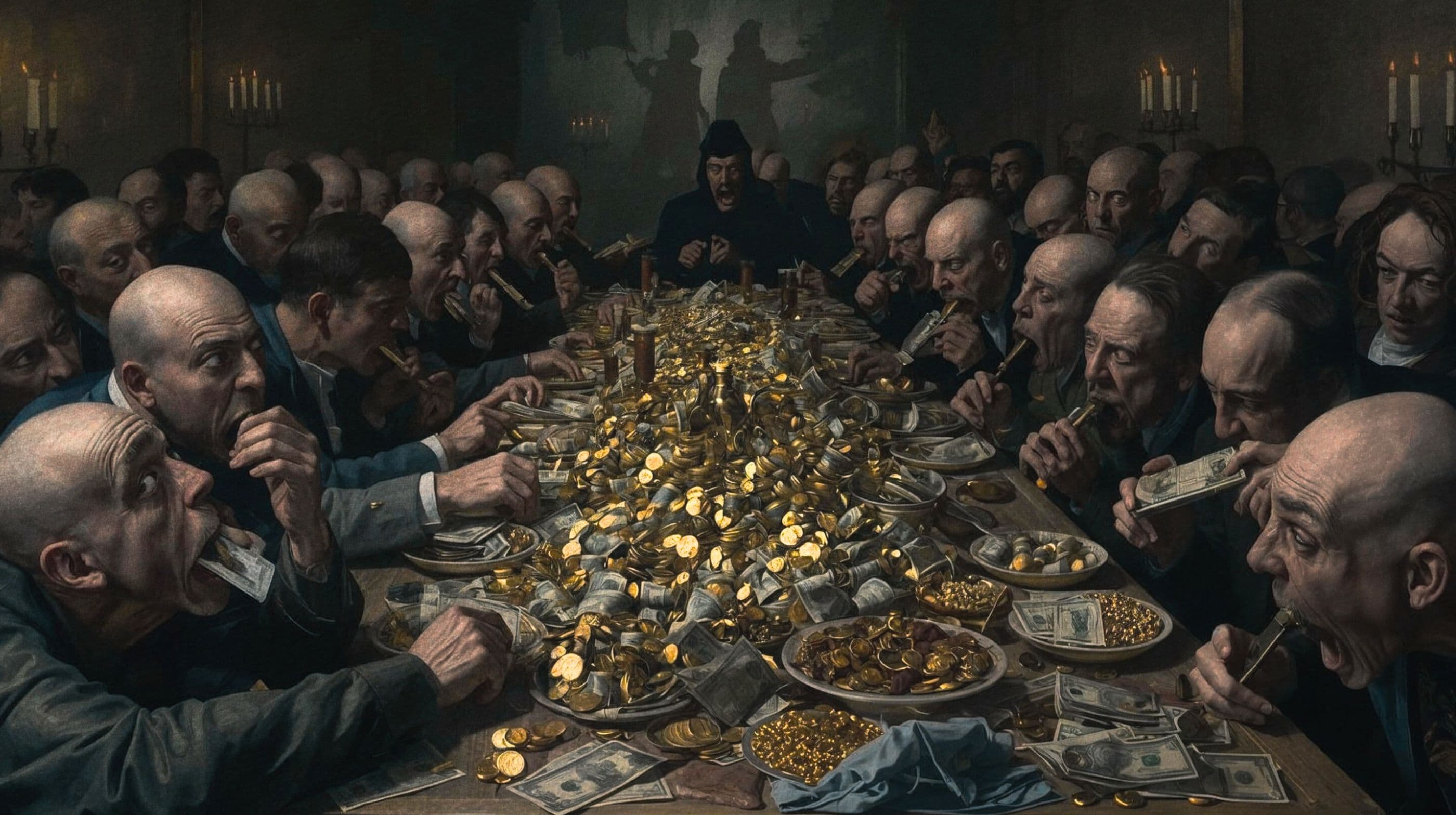If you’ve ever tuned into Bloomberg or dabbled in financial markets, you’ve likely encountered the word “volatility.” Volatility simply refers to the degree to which something tends to change rapidly. In the stock market, this means how quickly and sharply prices move. A highly volatile market experiences aggressive price swings, while a low-volatility market remains relatively stable.
Financial pundits often claim that greed drives bull markets and fear drives bear markets. I disagree. In my view, fear is the primary driver of both. In bull markets, it manifests as fear of missing out (FOMO), pushing people to chase after gains. In bear markets, it takes the form of fear of loss, prompting investors to sell in panic to avoid further drawdowns.
Fair Value and the Fear Pendulum
But what about when prices are neither euphorically high nor catastrophically low? What about when valuations seem reasonable—when the market appears “sane”? Even then, fear remains the undercurrent.
In Mastering the Market Cycle, Howard Marks describes market behavior as a pendulum: it swings from one extreme to another, momentarily passing through equilibrium, but never staying there. Prices may briefly reflect fair value, but the market—driven by human nature—rarely sits still. It’s always on its way to excess or despair.
This constant swing is not random. It reflects something deeper: the human psyche. Specifically, the ever-present undercurrent of fear. We fear missing out, we fear being wrong, we fear loss, and we fear being left behind. Fear, not logic, is the engine behind booms and busts. Markets are not irrational by accident—they are irrational by nature, because people are.
Spiritual Roots of Market Behavior
Where does this fear originate? Why do we live in such constant inner turmoil? To answer that, we have to go beyond economics. The nature of God is oneness—complete unity, total absence of separation.
Stephen Hawking observed that in a singularity, where all matter is compressed into an infinitesimal point, the laws of physics and mathematics collapse. This hints at a truth that lies beyond materialism: that the “laws” we treat as ultimate are, in fact, contextual constructs—limited to our physical, material world.
In the quantum world, we see further evidence of this. Quantum superposition reveals that matter isn’t as solid as we think—it exists in probabilities, not certainties. Entangled particles can influence one another across the universe instantaneously, defying Einstein’s speed-of-light limit.
These phenomena point toward a deeper, more mysterious reality. Call it God, the Source, universal consciousness—whatever the label, it implies that we are spiritual beings first and that the material and what we see is merely an illusion, energy vibrating at a slow enough frequency to be perceptible to the senses.
This is where markets become interesting. When someone chases a stock that has already run up 20x—Palantir, Nvidia, you name it—they’re not just making a poor financial decision. They’re revealing their spiritual emptiness. Their FOMO is a symptom of inner lack: a refusal to rest in what they already have, a disconnection from divine provision.
To be whole in God means to not desire outside of the genuine desires God placed in your heart. Rather than aligning with God’s will, they impose their own. They covet what others possess. They ignore their path and chase someone else’s. And often, they pay for it.
The delusion of “everyone can be an investor”
This spiritual misalignment shows up not only in individual stock picks, but in participation itself. Most people would never attempt surgery without medical training. Yet many jump into markets with zero knowledge or preparation. Why? Because entering the market is easy. But just because something is easily accessible doesn’t mean it’s for you.
The truth is, unless you possess a specific psychological and personality edge—discipline, contrarianism, emotional resilience, analytical solitude—you should stay far away. We don’t expect every person to become a surgeon, a mathematician, or an opera singer. So why do we pretend everyone should trade or invest?
Social media and financial influencers are partly to blame. They sell the dream without screening for suitability. They convince artists to become accountants and accountants to become traders. But just like every career path must align with personality and wiring, so too with the markets. Most people are not built for this game. They’re not weak—they’re just not designed for it. And that’s perfectly fine.
If you ignore this truth, you’ll likely lose everything. Your capital becomes exit liquidity for those who are designed for markets—the hedge fund manager in Connecticut, the seasoned trader who’s seen a hundred cycles. The smart money feeds on the irrational. The greater the number of participants without edge, the more inefficient the market becomes—and the more opportunity arises for those who truly understand it.
In this sense, markets aren’t just economic systems. They’re spiritual testing grounds. They reveal your internal state: your relationship with fear, greed, pride, and surrender. They expose whether you are whole within, or frantically seeking validation through numbers on a screen.
Conclusion: Giving up what isn’t yours
The market is not neutral. It’s a mirror—reflecting the spiritual and emotional state of its participants. For most, the wisest decision isn’t to double down on ambition, but to walk away entirely. That’s not cowardice. It’s the strength to know yourself deeply, to admit where your wiring ends, and to surrender the sinful desire for more. It’s renouncing your pride and surrendering your life to God’s commands, not your ego’s.
In the end, the market is a sacred arena, not because of the money at stake, but because of what it reveals about the soul. You either enter it from a place of inner sufficiency, or you become a sacrifice to it. Recognize the game for what it is. If you’re not meant to play, leave the table altogether—not in shame, but in peace and acceptance of the path God called you to instead.

